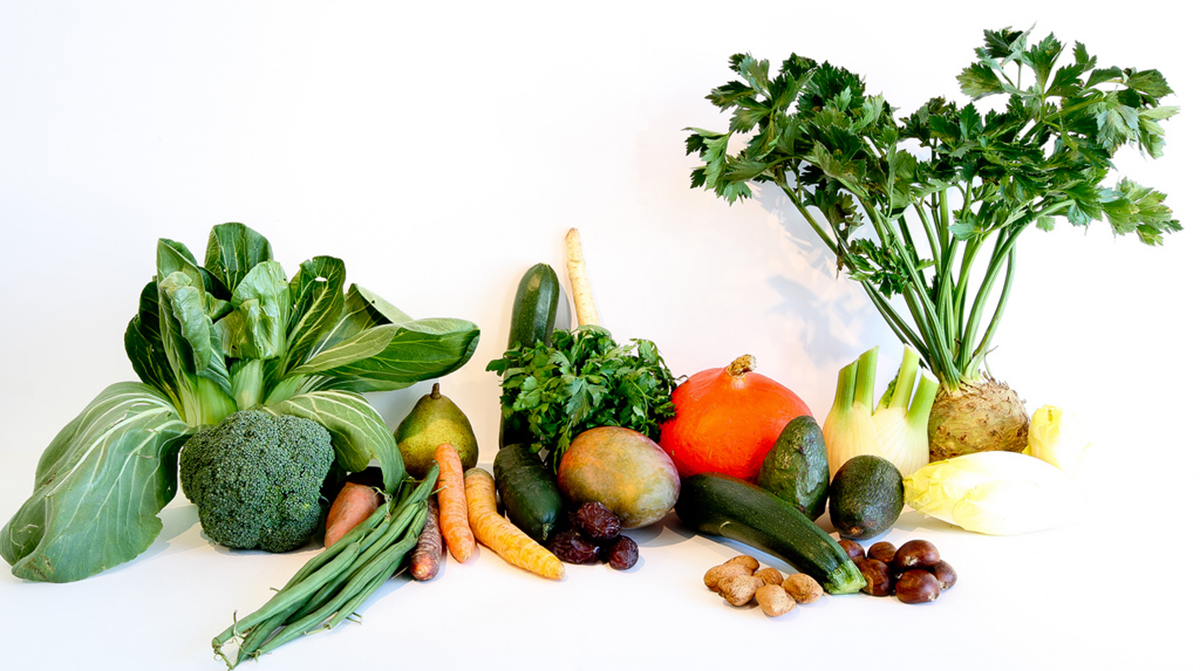Table of Contents
3. Vitamins
We've got used to thinking of vitamins as something you find in greens. And that's true - but B12 is something you find only in animal products. Even sources like yeast extract rely on eukaryotic microorganisms that are halfway to being animals. The richest sources of B12 are red meat and organ meats. But that doesn't mean you can't eat a nutritionally complete vegetarian diet. It's just harder.

Vegetarians sometimes face the problem that they eat too little Vitamin B12, and thiamin. Thiamin is essential for the release of energy from carbohydrates, which is ironic since the primary source of energy in most vegetarian diets is carbohydrate. The richest source of thiamin is from fish and meats, but plant sources exist: asparagus, squash and even bread are all good sources. In general, the B vitamin group is the one vegetarians are most likely to be short of. Vegans face Vitamin D shortage too, since dairy and meat are the best sources of this, besides sunlight.
4. Junk Food
Junk food is a major problem whether you're vegetarian or not. If you're vegetarian, you might assume that you're eating more healthily than the average omnivore simply because you're vegetarian; decades of anti-meat 'health' propaganda hasn't helped here.
But vegetarians can eat just as much junk as meat eaters.
Just like a meat eater, you need to focus your nutritional efforts on health first, which means eating vegetables in as wide a variety and as large a quantity as possible; then on strength, which means eating plenty of protein. Being vegetarian doesn't change that.
Honourable Mention: Nuts
Nuts are suitable for vegetarians and vegans. Â They're a good source of protein: steak is 25% protein, while almonds are 21% protein. It's less bioavailable, but it's also cheaper, more portable, and vegetarian. Nuts are also a good source of fat, a nutrient lacking in a lot of starchy vegetarian and vegan diets. Walnuts are four times higher in Omega-3 oils than salmon; they also contain chemicals that reduce LDL cholesterol and improve reasoning skills, promote healthy sleep and fight inflammation. Oh, and if you're trying to fit more calories into your vegetarian or vegan diet, nuts might be able to help: 100g of mixed nuts typically contains 750 calories, making them one of the most calorically dense foods in the world. Many vegetarians and vegans find peanut butter or other nut butters make a great cooking ingredient (Satay, anyone?) and sandwich spread.
See Also: Diet-Friendly Meals for Vegetarians
Takeaway
Being vegetarian or vegan doesn't mean your diet's good or bad. You can eat a vegetarian diet that powers you on to be a world class athlete: Germany's strongest man, Patrick Baboumian, is vegetarian, as is 4-time Mr World Bill Pearl; but it's not being vegetarian that made those guys great. It's being savvy, making good nutrition choices and training intelligently; vegan, vegetarian or omnivourous, we can all do that.
- Photo courtesy of www.localfitness.com.au by Wikimedia Commons : commons.wikimedia.org/wiki/File:Barbell_Group_Fitness_Class2.JPG
- Photo courtesy of Rick Ligthelm by Flickr : www.flickr.com/photos/ligthelm/10866943666/


Your thoughts on this